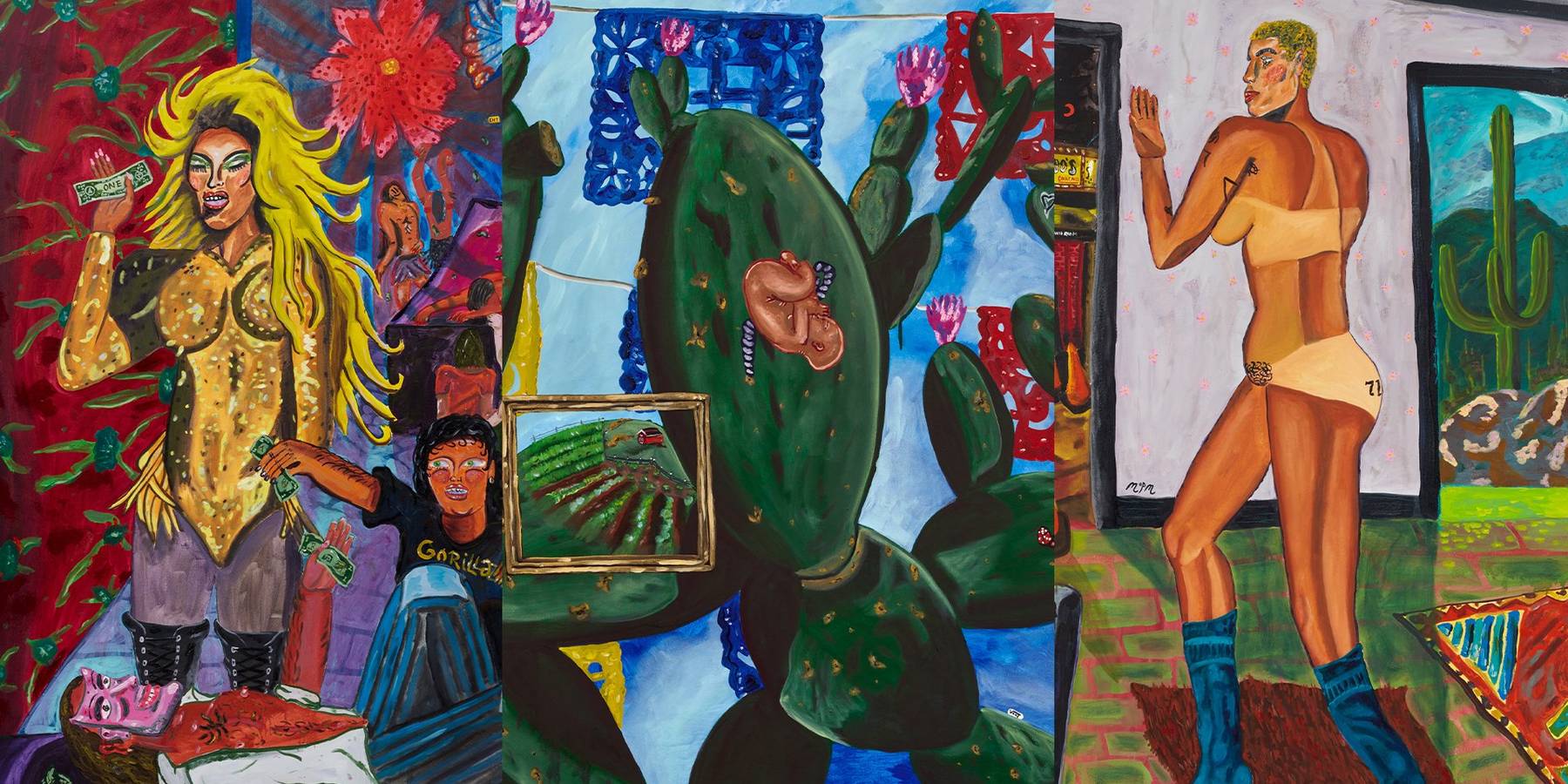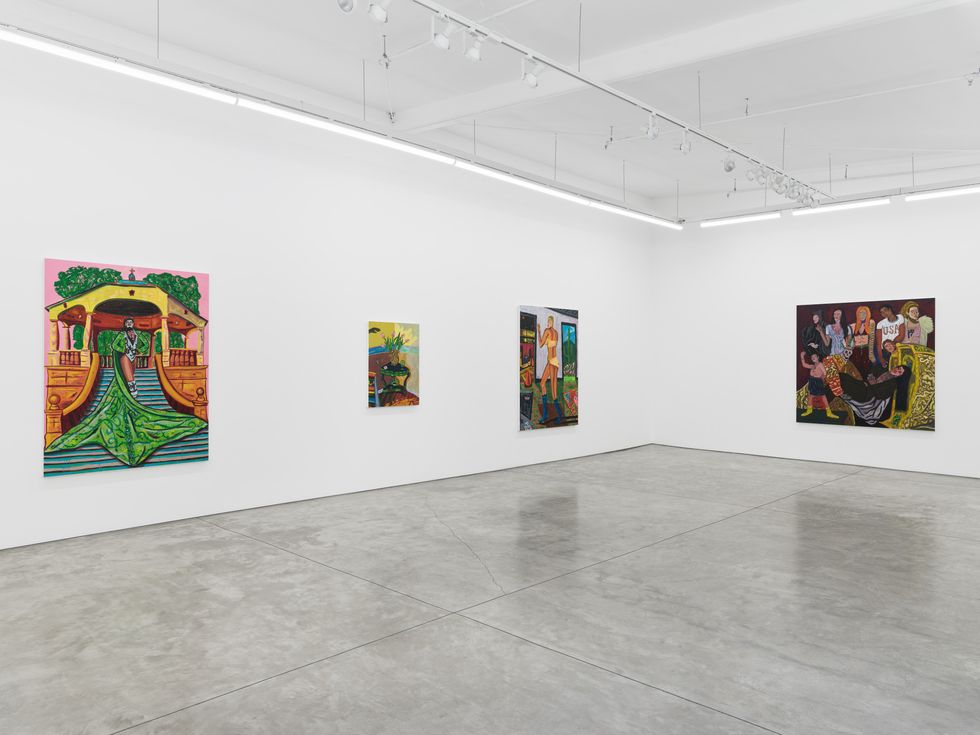
'Performance of Being' Is Marcel Alcalá's Portal To Queer Utopia
BY
Kenna McCafferty | Apr 25, 2023

In the pendulum swing between performance and reality, Marcel Alcalá’s The Performance of Being takes its own axis. Oscillating sincerity and grandeur, Alcalá’s latest body of work, on view at Night Gallery in Los Angeles, brings queer utopia to life.
A performance artist (i.e., professional clown) turned painter, Alcalá’s work expands with its audience, opening portals to a funnier, freer world. As The Performance of Being comes to a close, the importance of its existence as an artifact of the abundance of queerness grows.
“I’m always thinking about creating artifacts,” Alcalá tells PAPER. “People talk about what they want to be done to them when they die — cremated, buried — for me, I’m making paintings. I don’t really care what happens to my body.”
In the exhibition’s title work, Alcalá lies in the arms of Death and their mother, surrounded by guardian angels of their everyday — the chosen family they’ve found in their time in the Los Angeles art community — and flanked by a recreation of Alcalá as a child, “fiercely a queen but also performing masculinity.” “The Performance of Being” portrays the subjects of Alcalá’s daily reality with quasi-religious reverence, an altar of manifold identity.
“We’re all vessels for whatever our perception of reality is,” Alcalá explains of the painting’s depictions of queer chosen families within religious iconography. “Friendship is what ends up connecting us through our different experiences.”
The Performance of Being explores a broad scope of experience. Inverting the focus of their self-reflexive quarantine collection, Solita, Alcalá’s latest work traces a communal thread through its subjects. A lucha libre drag wrestler stands at the altar of a common pueblo Gazebo (“Presence of Mind”); a coyote skirts the city of angels (“En La Calle Somos Unidos”); a cactus engulfs a fetus (“My Abuela’s Cactus”). Each piece carries fragments of Alcalá’s personal history: their work as a clown in drag bars, their feelings of loneliness in LA, the cactus tended to by generations of their family in Santa Ana.
While the interdimensional world of The Performance of Being unfolds at each glance with symbols and portals, Alcalá takes it at face value. “It’s not that [the subjects] represent a certain character, but rather just themselves. They represent something for themselves. And then it’s just fun from there.”
The exhibition comes at a tender time for the queer community, where representations of queerness are celebrated and vilified in the same breath. In the time since The Performance of Being’s opening, “Don’t Say Gay” rhetoric and restrictions to gender-affirming care have populated headlines, ostracizing the community Alcalá’s work immortalizes.
“I’m just proving that it’s all normal,” Alcalá explains. “I’m proving to myself that I’m not ashamed, that I’m not living in shame.”
The Performance of Being has been a point of confluence for Alcalá. Seeing their immediate family and their chosen family take pride in themselves has brought new life to their depictions. “There’s something about painting that is so accessible. To see my non-art relatives and people in my life connect with it is very satisfying.”
As Alcalá’s audience grows ever broader, the path to their queer utopia unfolds in all directions. Recently named as a participant in “Made in L.A. 2023: Acts of Living,” Alcalá no longer skirts the edges of the art world like their “En La Calles” coyote. “This happening is kind of monumental. It really encapsulates my time here and contextualizes my work as a Los Angeles artist,” they said. “I have my chosen family around me. I’m not alone, even when I’m literally alone.”
Alcalá’s world rings close to home. Welcoming all who’ve passed through it to rest, play and celebrate themselves, The Performance of Being exercises the extremities of the queer experience, savoring the triumphs alongside the tragedies, as Alcalá’s pendulum swings ever wider.
“I honestly want it to be fun,” they say. “I want the dramatic sad moments to also be fun, like a nod, or a smile, or a little kiss.”

Photo by Marten Elder
Photos courtesy of Night Gallery